Log in or create new account to save this product to your wishlist.
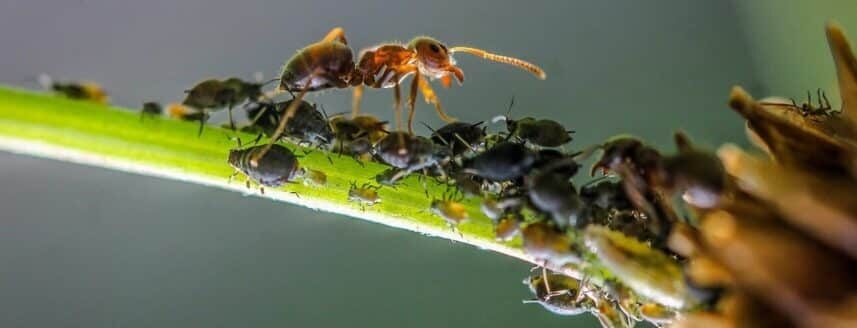
10 Tips to Identify & Combat Garden Pests
Discover practical and simple tips to get rid of garden pests such as garden bugs, plant pests, and pests on plants. Take charge and reclaim control of your little oasis, ensuring it is free from unwanted garden insects and plant bugs.
🌱 All important maintenance moments for your lawn during the year. Leave your email and we will send you the lawn calendar for free.
Enter your email
Receive the lawn calendar in the mail
Enjoy a green lawn all year round!
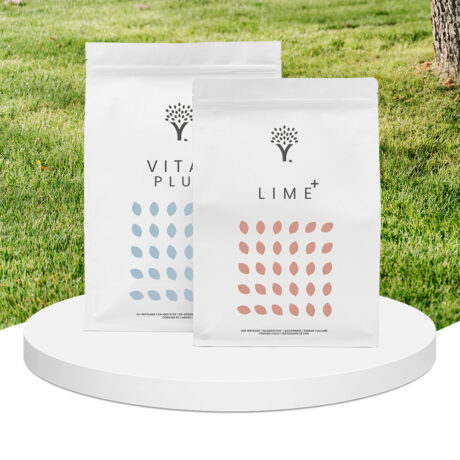
- Order by 2PM = shipped today
- 250.000+ satisfied customers!
- 60 day satisfaction guarantee
- How do pests get into your garden?
- Identifying garden pests
- Tip 1: Natural insect control
- Tip 2: Diatomaceous earth as a natural control
- Tip 3: Use companion planting in your vegetable garden
- Tip 4: Garlic spray against pests in your garden
- Tip 5: Remove weeds regularly
- Tip 6: Tackle pests with birdhouses
- Tip 7: Pheromone traps against specific pests
- Tip 8: Place mulch around your plants
- Tip 9: Get rid of pests with essential oils
- Tip 10: Make sure your plants are healthy
- Garden pests FAQ
- Don’t give pests free rein
Do you ever find yourself at a loss when unwanted visitors start to infest your garden? Don’t panic! In this article, we unravel the secrets to a pest-free garden with 10 practical tips. From natural allies to clever garlic tricks, there are many easy ways to identify and combat garden pests. Read on to find out how you can take back control.
How do pests get into your garden?
Your garden is a haven for common garden pests, offering them an abundance of food and hiding spots. These pests, including those lurking in the soil, can invade your garden from neighbouring areas or be drawn to food sources like compost piles. Understanding their entry points is crucial for effective pest control.
Identifying garden pests
Identifying garden pests through signs like sticky secretions or visible critters on plants is the first step towards an effective control strategy. The sight of eaten leaves is a clear signal that it’s time to tackle these plant pests, utilizing garden pests identification pictures for accurate identification.
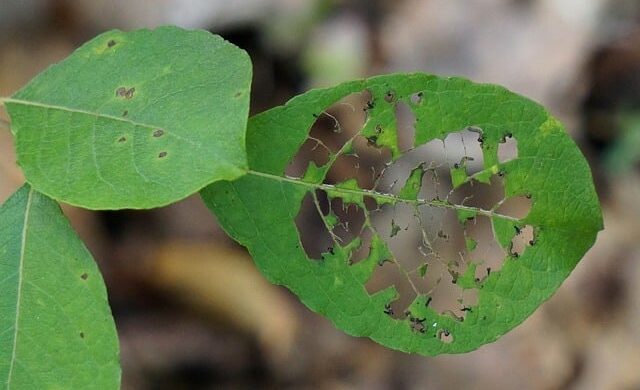
Familiarizing yourself with common garden bugs and insects, such as slugs, lice, caterpillars, and beetles, is vital. Knowing the specific pests infesting your garden allows you to take targeted actions against these examples of pests, safeguarding your plants from damage and combatting nibbled leaves.
Common harmful garden insects UK
- Oak Processionary Caterpillar / Moth
- Leaf Miners
- Aphids
- Chafer Grubs
- Slugs and Snails
- Vine Weevil
- Box Tree Caterpillar
- Ants
Tip 1: Natural insect control
Leveraging natural enemies, like ladybirds and birds, is an effective pest control strategy. Many garden pests have natural predators that help maintain ecological balance. Attracting these allies into your garden can significantly reduce the population of harmful pests.
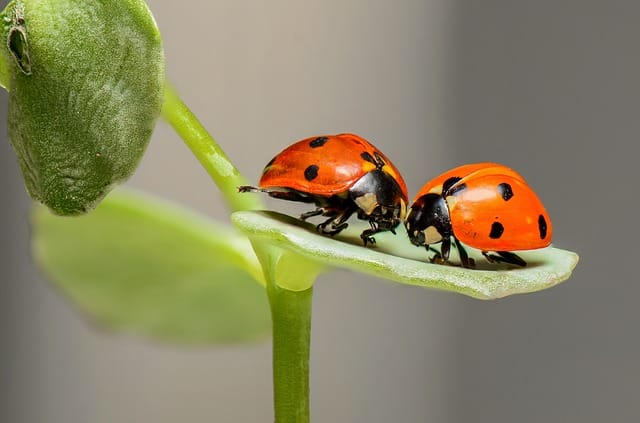
Enhancing your garden with birdhouses, insect hotels, and ponds, alongside planting insect-attracting flowers like lavender and marigolds, invites natural predators. This approach controls pests and adds beauty to your flower gardens.
Tip 2: Diatomaceous earth as a natural control
Diatomaceous earth, a natural remedy made from the ground-up fossils of diatoms, is effective against soil pests. Its abrasive action on the exoskeleton of insects leads to dehydration and death, offering a non-toxic solution to managing pests in soil.
Applying diatomaceous earth around your plants or spraying it directly can protect them from insects. For safe and effective pest control, make sure you use food-grade diatomaceous earth as it is safe for humans and pets.
Tip 3: Use companion planting in your vegetable garden
Companion planting deters pests naturally, with certain plants acting as repellents due to their inherent defence mechanisms. For instance, marigolds against slugs and snails. These plants are showcasing the power of strategic planting in managing plant diseases and pests.
Tip 4: Garlic spray against pests in your garden
Garlic spray, a natural pesticide, proves effective against aphids and vine weevils. Creating a garlic-based spray by mixing it with water and a bit of liquid soap offers a homemade solution to combat these pests, including the troublesome aphids.
Let the mixture steep for a few days, then strain it. Spray the garlic spray on the infected plants to get rid of pests. The strong smell of garlic will deter pests and prevent them from attacking your plants. Like this, you can use garlic against aphids. Controlling vine weevils with garlic is also effective.
Tip 5: Remove weeds regularly
Weeds can serve as a shelter and food source for pests and diseases. It is therefore important to remove weeds regularly to reduce the risk of an infestation in your garden. Be sure to remove the weeds, root and all, so they can’t grow again.
Regular weeding of your garden will not only help control the presence of pests, but it will also promote the health of your plants by giving them more space and nutrients.
Tip 6: Tackle pests with birdhouses
Birds are natural enemies of many pests, such as snails, caterpillars, and beetles. By placing birdhouses in your garden, you can attract birds that eat these pests in your garden.
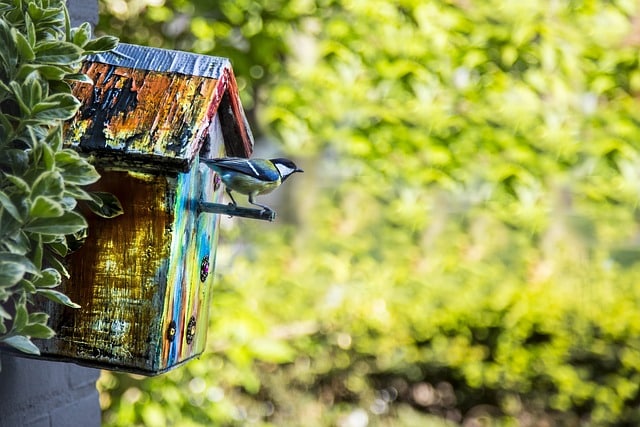
Make sure the birdhouses are in a sheltered spot and provide them with food and water. By encouraging birds to visit your garden, you are doing natural insect control, and you can keep the pests in check.
Tip 7: Pheromone traps against specific pests
Pheromone traps are an effective way to control specific types of pests in your garden. Pheromones are chemicals secreted by insects to communicate with other individuals of the same species.
By utilising pheromone traps, it is possible to attract and capture male insects, thereby disrupting their reproduction and reducing the number of harmful pests. There are traps for different types of pests, like fruit flies and the boxwood moth.
Tip 8: Place mulch around your plants
Mulch is a layer of organic matter that you can put around your plants to suppress weed growth and maintain soil moisture. However, laying mulch can also help with garden grubs identification in the UK and managing bugs in garden soil. Mulching can also help get rid of pests. Some types of mulch, such as wood chips and straw, can serve as shelter for natural pest predators, such as ladybugs and spiders.
Tip 9: Get rid of pests with essential oils
You can also use essential oils to repel pests from your garden. Some essential oils have a strong odour that deters pests. For example, peppermint oil can help keep ants and spiders at bay, while citronella oil is effective against mosquitoes, making them a part of organic pest control strategies.
Mix a few drops of essential oil with water and apply the mixture to the affected areas of your garden. Be careful to dilute the oils before using them, as otherwise they can be harmful to your plants.
Tip 10: Make sure your plants are healthy
Healthy plants are less susceptible to pests and diseases. So make sure your plants get enough water, nutrients, and sunlight to keep them strong and healthy. Water your plants regularly, but avoid overwatering, as this can promote fungal growth and make them more prone to garden pests and diseases.
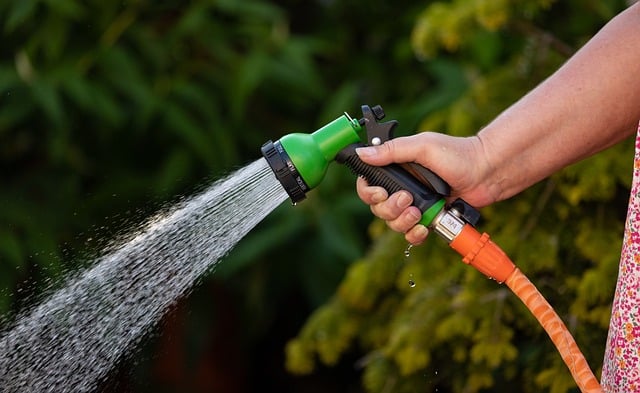
Opt for organic control methods to feed your plants and avoid using chemical pesticides that can be harmful to the environment. By growing healthy plants, you reduce the chances of pests in your garden, embracing a more sustainable approach to managing pests and diseases.
Garden pests FAQ
Control garden pests naturally by attracting beneficial insects, such as ladybugs. Take care of a balanced ecosystem, which is the best guarantee of a healthy and thriving garden.
Keep insects out of your garden naturally by choosing plants that repel insects, such as lavender or basil. Use natural repellents such as garlic spray and maintain your garden regularly. This way, you can create an insect-free environment without harmful chemicals.
Holes in leaves are often caused by the caterpillar of the small winter moth, weevils or snails. Identify the specific insect based on the damage and apply targeted, natural control methods for a healthy garden.
Don’t give pests free rein
Controlling pests in your garden is a process that requires constant attention and dedication. Apply the tips from this article consistently and take back control of your garden. Whether it’s the fight against snails, aphids, ants or boxwood moth, remember that persistence wins! So don’t let pests be a spoilsport so that you can continue to enjoy a beautiful, healthy garden.
Do you have any questions or need more advice? You are welcome to leave a comment or contact us.
Happy gardening!
-
Orchids: A Complete Guide on How to Care for ThemWant to give your orchid the best possible care? Discover essential tips from placement to watering and pruning. Learn everything you need to know!Read more
-
Growing Wisteria Made Simple: From Planting to Perfect BloomsWith blossoms like a purple waterfall, Wisteria sets an almost magical and colourful mood. If you want to grow this beauty in your garden, you’ll need a bit of patience. Don’t worry, it will most definitely pay off.Read more
-
How to Build a DIY Greenhouse: A Practical Guide for Smart SpendersImagine extending your growing season throughout the year, nurturing tender plants regardless of the weather, and creating a personal garden sanctuary. This is precisely what a DIY greenhouse offers you. Let’s learn how to build one.Read more
-
How to Grow Eucalyptus in British GardensWith a little love and care, eucalyptus trees can thrive in English gardens. Since they don’t germinate well without proper help, there are not considered invasive. So, there is no reason not to plant them if you enjoy their looks.Read more
-
Transform Your Garden with All-Year-Round Flowering PlantsDid you know you can enjoy blooming flowers even in January? With the right selection of all year round plants, there’s no need to wait until spring to add some colour to your garden.Read more
-
How to Create a Butterfly Garden: A Simple Guide for British GardensThe UK's butterfly population includes 59 different species. These beautiful winged creatures face a steady decline because of habitat loss, pollution and changing weather patterns. Your garden can become a vital link between nature reserves and natural habitats. Let’s explore how.Read more
-
Volcanic Rock Dust for Your Garden—Application and TipsDid you know that volcanic rock dust is a brilliant organic soil improver? This article explains exactly what it's good for and how to use it properly.Read more
-
How to Use Landscape Fabric ProperlyIf weeds or erosion in your garden are troubling you, landscape fabric might be the solution. We’ll explain how and when to use it properly, just keep on reading.Read more
Leave a comment
Your answer will be displayed on the site and the interested party will be notified by email.
Leave a comment
Have a question or want to share your experience? Leave us a comment.
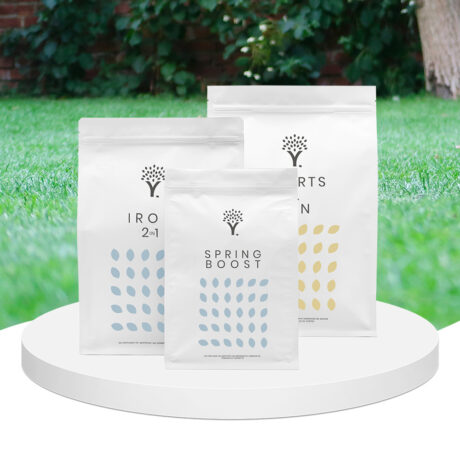
- Order by 2PM = shipped today
- 250.000+ satisfied customers!
- 60 day satisfaction guarantee
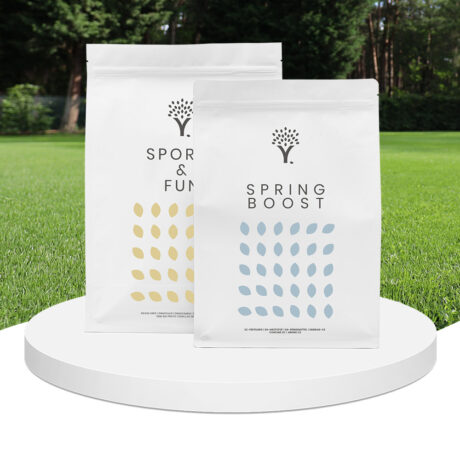
- Order by 2PM = shipped today
- 250.000+ satisfied customers!
- 60 day satisfaction guarantee

🌱 All important maintenance moments for your lawn during the year. Leave your email and we will send you the lawn calendar for free.
Enter your email
Receive the lawn calendar in the mail
Enjoy a green lawn all year round!

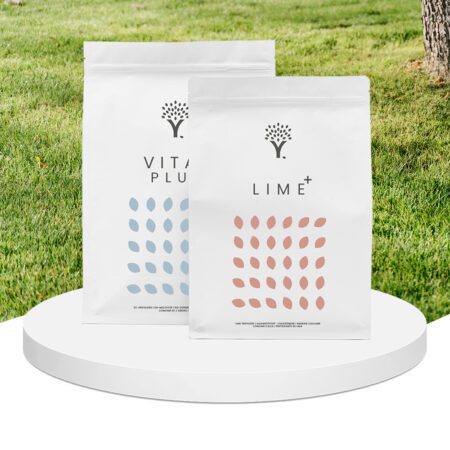






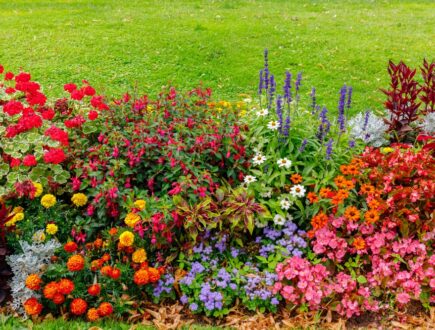


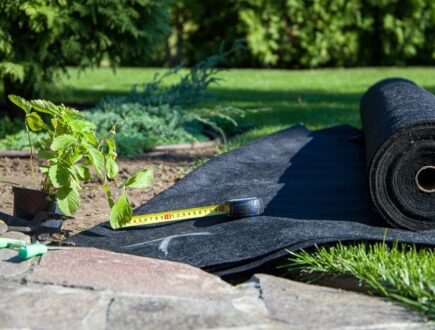
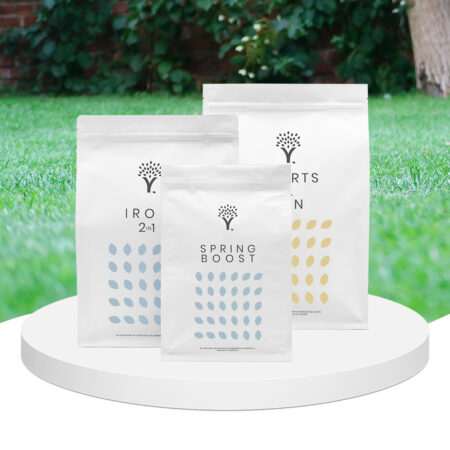
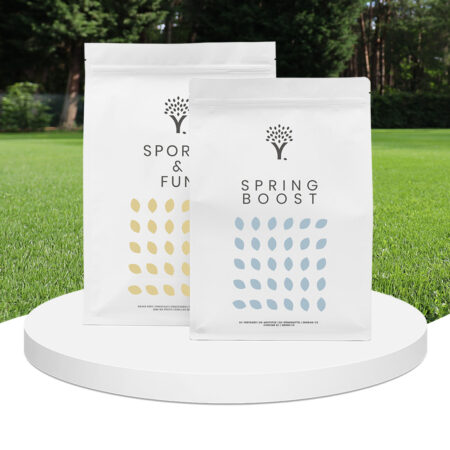
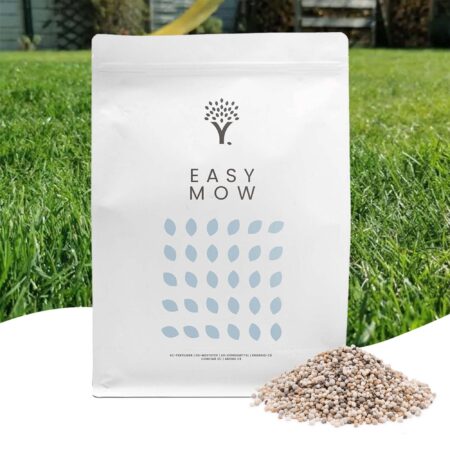
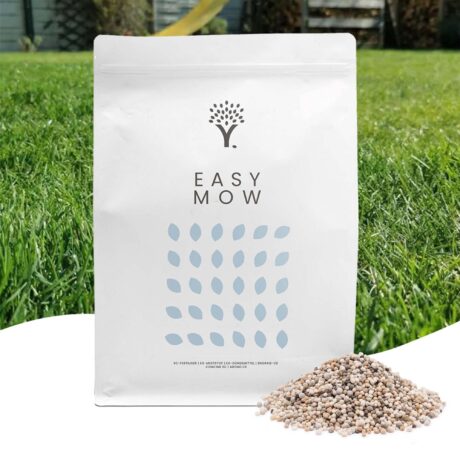

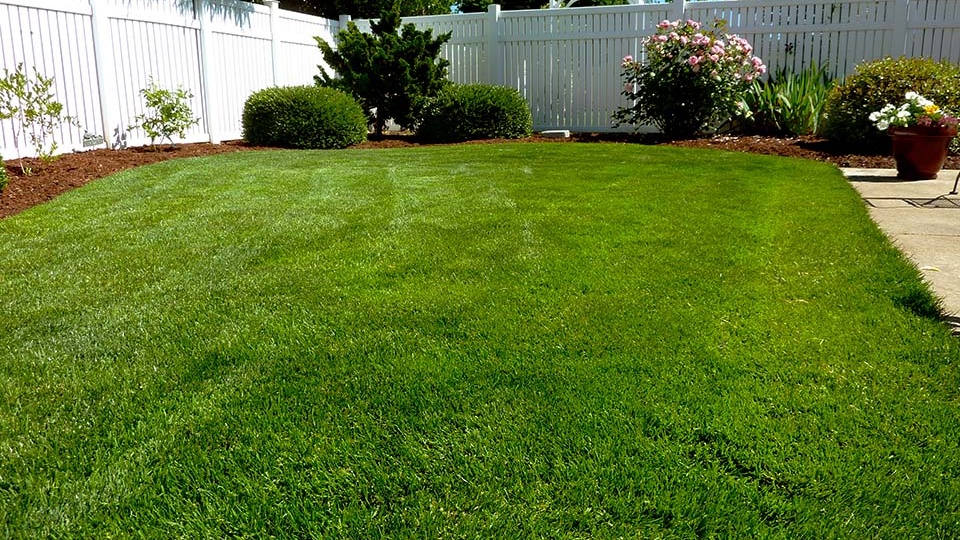

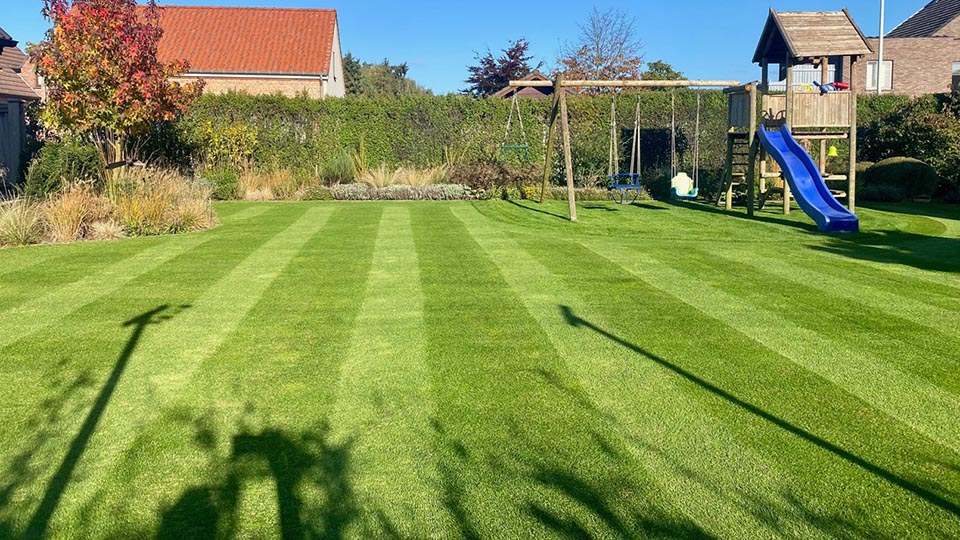

Comments (0)
There are no comments yet. Well then, what are you waiting for to
Be the first to write your comment!inaugurate this pretty page?
Do you have some comments?